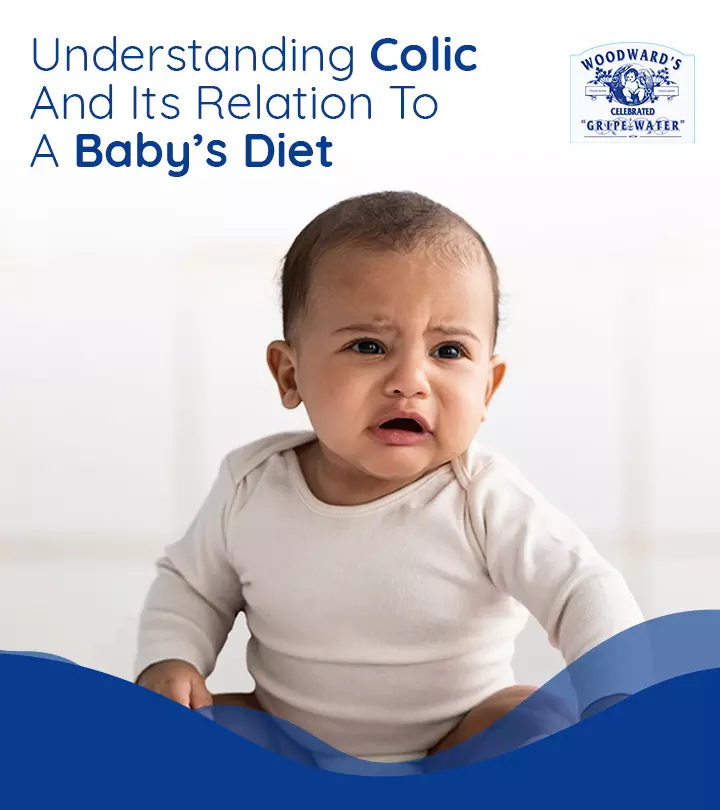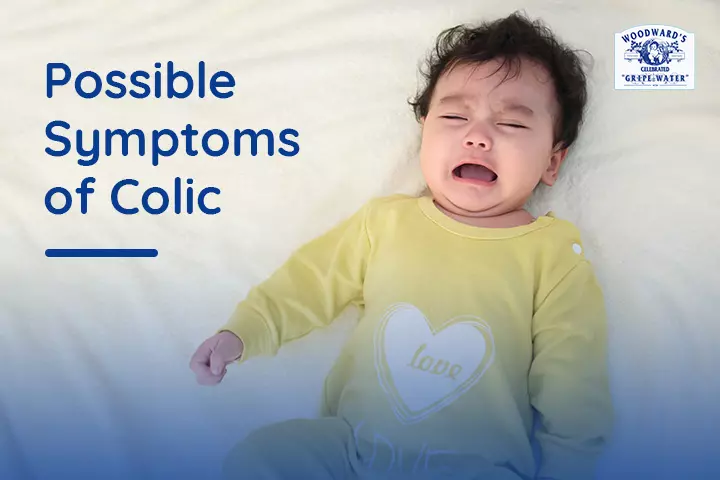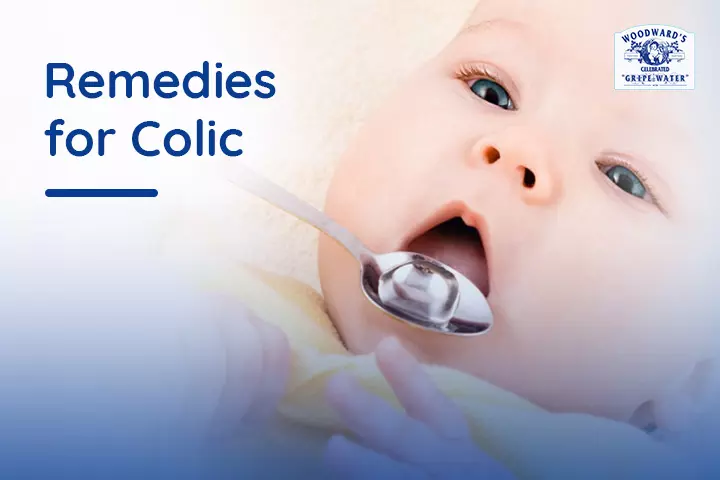
Image: Shutterstock
Your baby’s first cry is something that you, along with a team of experienced medical professionals, wait for in the delivery room. The feeling of relief that floods you as you hear your baby screaming their lungs out is something that cannot be described. This, however, quickly turns to anguish and dismay as you realize that this crying never stops. And worse still, when a baby who cries on the clock and does not get placated no matter what you try. At this time, your pediatrician may diagnose your baby as ‘colicky’, but what exactly is Colic?
What Is Colic?
Colic may sound like it’s a disease, but it’s not. Most doctors use The Rule Of Three to diagnose Colic – A baby who cries for more than three hours per day, more than three days per week, and for longer than three weeks. Colic in babies usually starts at around 3 weeks from birth with loud, constant crying and can be very traumatic for parents. Colicky babies are fussy, may be gassy, and have trouble sleeping. These fussy episodes can start suddenly and continue for a long time, sometimes late into the night, leaving parents worried and exhausted.
Colic has baffled medical practitioners for ages because no one has been able to find a cause or cure for it, even though several theories abound. Some doctors believe that an immature digestive or nervous system can cause babies to cry. Some others believe that babies usually react to overstimulation and cannot self-soothe. Other factors include gas, food allergies, overfeeding, infrequent burping, stress, and anxiety, though research is inconclusive. Colic disappears as suddenly as it appears. In most cases, pediatricians advise you to just wait it out.
Possible Symptoms of Colic
Babies have been known to cry since birth, and parents are usually tuned to respond to these cries and soothe the child accordingly. The problem arises when this crying is regular, continuous, and difficult to soothe. The range for typical crying can be difficult to pin down, but if your baby is clothed, fed, and changed and is still crying at the same time every day (usually in the evening), then it might be colic. Other symptoms to look out for:
- Intense crying for no apparent reason
- Fussiness, even after crying has diminished
- Flushed face and clenched fists
- Tensed body, stiffened arms, arched abdomen
- Frequent burping or passing of gas
What Happens When Colic Is Left Untreated
Colic is not known to cause any long-term medical problems, but it can be incredibly stressful for parents trying to deal with it. Apart from the feelings of guilt, helplessness, and exhaustion, it can lead mothers to feel anxious which may further lead to a drop in milk supply. The stress of soothing a crying baby may sometimes prompt parents to shake their baby. This is extremely dangerous for infants. It may cause physical and sometimes even neurological damage. Do contact your pediatrician if your baby shows any sudden behavioral changes or the following symptoms
- Fever
- Diarrhea
- Vomiting
- Blood in their stools.
A study in Sweden found that even though Colic is fairly common(1 in 5 babies suffer from Colic), children who suffer from Colic are more likely to throw tantrums growing up. The researchers found that colicky babies are more prone to emotional outbursts later in life even as other parameters remained constant.
Remedies for Colic
Since there are several theories as to the causes of colic, there are no proven treatments yet. The primary objective is to soothe the baby while providing parents as much support as possible to help cope with the situation. Doctors recommend various soothing techniques to help calm a fussy baby. Some of these are:
Tummy Time: Changing the position may help calm your baby. Lay them face down across your lap and pat their back. This helps any residual gas pass through and may provide some comfort. Tummy time also helps your child build stronger neck and shoulder muscles.
Pick Them Up: Holding your baby close to you is comforting for your child. Doctors have advocated the power of skin-to-skin contact greatly when trying to soothe a crying baby. Also, holding your baby upright reduces the chances of acid reflux (which may be a contributing factor to Colic), further reducing the chances of a colicky episode.
Use a Swaddle Blanket: A swaddle helps babies feel secure and keeps them cozy. This helps them calm down and fall asleep quickly.
Limit visual distractions: Dim the lights, run a white noise machine or play a soothing beat on repeat.
Gripe Water: Gripe water has been used by mothers for years to comfort their babies. Made using Ayurvedic ingredients, like Sarjikakshara and Dill Seed oil, Gripe Water is an Ayurvedic formulation that has been used by successive generations to treat and relieve Colic related problems for babies. Gripe water is available at all leading chemist stores, and it is advisable to ask your doctor about recommendation of gripe water and its dosage before administering it.
While Colic usually resolves itself as your baby grows up, it is quite challenging for parents to address the discomfort as it happens in real-time. Consult your doctor before making any changes to your baby’s or your routine and ask your pediatrician for recommendations & dosage regarding gripe water.
Read full bio of Dr. Reema Pandya

















